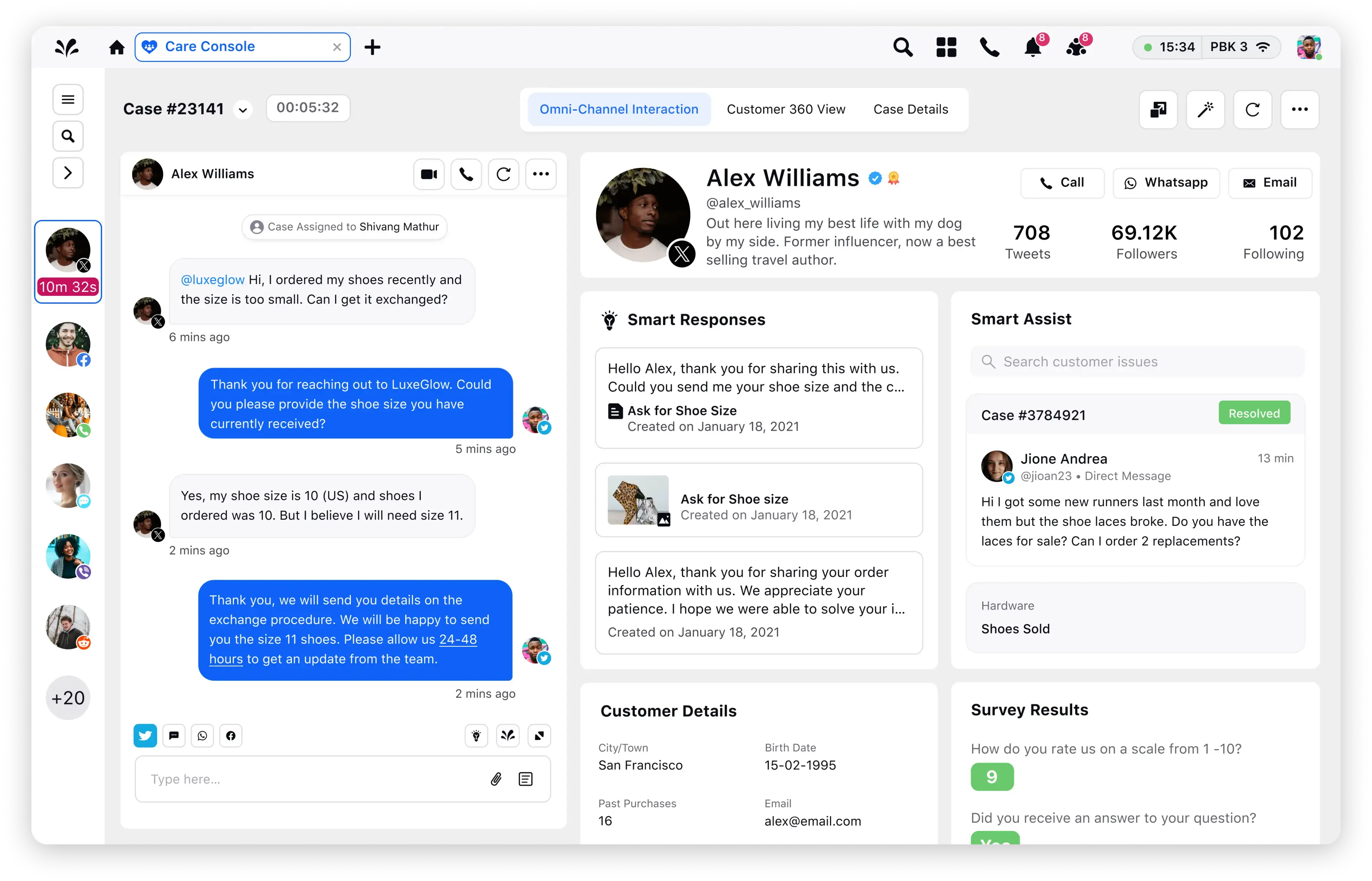The next generation of CCaaS is here
Digital-first customer service, enterprise-scale voice support. Redefine customer service with an AI-powered platform that unifies voice, digital and social channels. Power channel-less interactions and seamless resolution no matter the channel of contact.

Why a future-proof customer service operation needs to be flexible
Changing expectations
Sprinklr recently hosted a webinar to discuss what crisis management would look like in the ‘new normal’. COVID heightened customer expectations – customers need accurate information around the pandemic and they need it real-time. They also demand businesses to be transparent with the measures they put in place and act responsibly as employers, while tackling customer challenges with empathy and ingenuity. It quickly became clear that post-COVID would be a new era for servicing the customer.
The first wave of the pandemic saw shutting down of physical locations for an extended period of time. And now the second wave sees countries trial different lockdown strategies. Business continuity is disrupted, and the contact centers took a significant hit throughout. Waiting times increased. Now, it is easy for the customer to make the switch between the traditional and the digital contact channel. But not so for the business. Loss of contact center resources meant brands needed to scale response across multiple digital touch points, and they needed to do so quickly.
What type of customer service software would allow this transition? It’s complicated. Data is siloed. There are multiple systems through which data don’t always seamlessly flow. Siloed systems create siloed end-users. These customer service departments – they simply cannot ‘flex’ – a) they are unable to manage sudden, unforeseeable peaks in demand, b) they cannot keep up with the ever-proliferating digital channel landscape.
The business impact
The pandemic was a test to the digital transformation efforts to date, and some failed. Inability to identify and resolve customer issues on the channel the customer preferred led to low CSAT, which resulted in churn. Slow response, or response that lacked empathy or discernment also meant damage to brand reputation, which resulted in lost revenue to competition.
What’s the solution?
Those who had already commenced their digital transformation journey on the other hand, rolled out ‘transformation plans on steroids’. Brands achieved in a few months what they had been planning to do so in years. AI-powered conversational bots, Live Chat, and Automation kicked in for better triaging and better routing. Overnight deployment of Sprinklr AI helped the airline industry drastically reduce backlogs when care agents were unable to travel to the office. AI helped release capacity in the service operation so human to human interaction could be focussed on more complex customer inquiries. Sprinklr Chatbots and Live Chat enabled the retail industry to swiftly develop a work-from-home model. Hospitality was able to draw real-time insights around customer expectation from the brand amidst the pandemic and infuse it into marketing campaigns to maintain customer affinity and empathy, as both functions seamlessly collaborated on Sprinklr. Brands tuned into the chatter to surface customer feedback across the entire journey. Bad PR was minimized.
It’s still hard to see beyond the pandemic and there is a huge amount of uncertainty. But we know that the digital channels are here to stay. What resilience looks like in the ‘new normal’ is slowly starting to shape up. A future-proof customer service operation needs to be flexible. This flexibility should be driven by a unified, integrated platform that is operated by blended agents so that customer service can scale across multiple customer touch points with ease while also keeping an authentic, unified, consistent ‘human’ response. Customer service and marketing operations should be able to collaborate seamlessly to strengthen the authentic brand voice. The unified workflow for servicing should also be capable of easily absorbing new contact channels as they emerge. The flexibility of approach and a comprehensive collaboration can help brands better navigate the ‘new normal’ with stronger business continuity strategies.
Nazli Basoglu is a Senior Consultant, Business Value at Sprinklr. She was featured as a panelist in Sprinklr’s recent virtual event: ‘Stop Collaborate and Listen: Crisis Management isn’t what it used to be.’ To learn more about Nazli’s recommendation for crisis management and business continuity, please register to watch this virtual event.